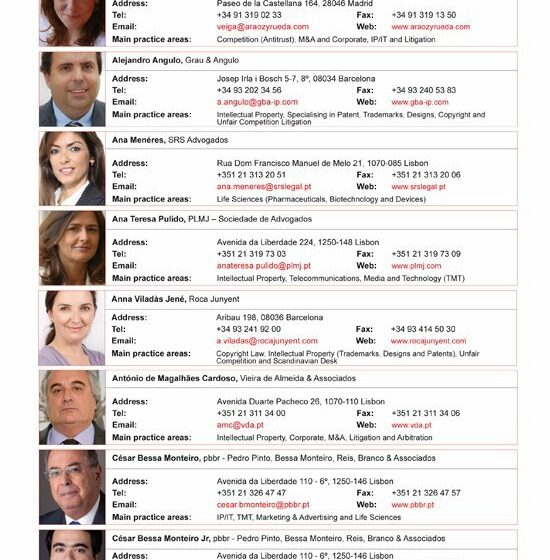Increasing the frequency – Vieira de Almeida
Telecoms companies are preparing to ring in a new era as Portugal gets ready to auction off its 4G spectrum bandwidth
Las empresas de telecomunicaciones se preparan para una nueva era: el regulador Portugués ANACOM se prepara para subastar el espectro 4G, explica Magda dice Cocco de Vieira de Almeida. Se espera que nuevas compañías accedan al mercado para desafiar a los tres grandes operadores actuales.
The challenges facing the Portuguese economy have been evident for all of Europe to see. Amid the multi-billion euro bailouts and general election, public authorities have however started to look at helping to rebuild the country’s battered economy. The spectrum auction by regulator ANACOM of the next batch of telecoms frequencies – 4G – is part of that process.
4G is the fourth generation of wireless telecoms and is expected to provide comprehensive IP- based broadband solutions for smartphones, tablet computers, wireless modems and other mobile devices. Services such as IP telephony, ultra-broadband Internet access and streamed multimedia may thus be provided to Portuguese users.
“This year should see a number of radio frequencies for broadband wireless access put out to auction and this has prompted great interest from the major network operators acting in the Portuguese market,” says Magda Cocco, Partner and co-Head of Lisbon-based Vieira de Almeida & Associados’ Telecoms, Media & IT (TMT) practice group. “This auction is also expected to attract the interest of new international players.”
Indeed, hopes are that new entrants will challenge the local powerhouses. The Portuguese mobile telecoms sector is currently dominated by three operators: TMN (owned by Portugal Telecom), Optimus (owned by SONAECOM) and Vodafone Portugal.
In addition to increased competition, ANACOM officials believe the auction can provide a significant windfall for the Government during the current crisis. Estimated figures for the auction range from €450m to €500m. The 4G licence auction in Germany, as an example, boosted the Government’s coffers by over €4bn, although Cocco is cautious about the figures.
“I think that €450m is quite a high and ambitious amount, especially taking into consideration the allocation price of the spectrum in other European countries and Portuguese consumers’ purchasing power,” she says. “It is clear that if mobile operators and other players want to compete in Portugal, they need to bid. Not joining the bandwagon from the outset will run the risk of missing out.”
Further change
The spectrum auction is just one aspect of the Portuguese telecoms sector providing interest to established market players and potential new entrants. The last quarter of 2011 will bring the spectrum auctions along with other structural changes as part of ANACOM’s Strategic Plan for 2011-2013.
One of the commitments undertaken by the Portuguese Government as a pre-requisite of the financial assistance package presented by the European Union (EU), European Central Bank (ECB) and International Monetary Fund (IMF) is to give up its “golden shares” and all other special rights established by law or in the statutes of publicly quoted companies, including in Portugal Telecom. The deadline for the sale (the end of July 2011) is ambitious, says Cocco, but the requirement means that sooner or later the Portuguese state will lose its special rights, tied to its ownership of 500 Portugal Telecom “class A” shares. “The scope of possibility for investment that is put forth by this commitment is bound to get the attention of many investors,” she says.
Other matters on the horizon for Portuguese telecoms companies include the privatisation of CTT and Radio Televisão Portuguesa as well as the expansion of their businesses abroad. All of which should present interesting opportunities for telecoms lawyers.
“We have already noticed a significant increase in the demand for legal services in Portuguese Speaking African countries, namely Angola, Mozambique, Cape Verde and, of course, Brazil,” Cocco says. “It seems that, at least in what regards the telecoms area, there are undoubtedly business opportunities arising at the present in the national market and there are indications of planned further international expansion.”
It may be doubtful whether the 4G licence auction will open the Portuguese market completely or bring in the desired revenues but, what is clear, is that market changes are nonetheless ahead, she concludes.












